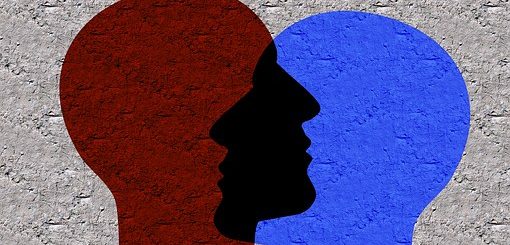Understanding ADHD
Attention deficit hyperactivity disorder (ADHD) is a mental health condition affecting both children and adults that can cause unusual levels of hyperactivity and impulsive behaviours. People with ADHD may also have trouble focusing their attention on a single task or sitting still for long periods of time. Many people experience inattention and changes in energy levels. For a person with ADHD, this happens more often and to a greater extent compared with people who don’t have the condition. It can have a significant effect on their studies, work, and home life.
Types of ADHD
To make ADHD diagnoses more consistent, health professionals have grouped the condition into three categories, or types.
Predominantly inattentive: As the name suggests, people with this type of ADHD have extreme difficulty focusing, finishing tasks, and following instructions. Experts also think that many children with the inattentive type of ADHD may not receive a proper diagnosis because they don’t tend to disrupt the classroom.
Predominantly hyperactive-impulsive type: People with this type of ADHD primarily show hyperactive and impulsive behaviour. This can include fidgeting, interrupting people while they’re talking and not being able to wait their turn. Although inattention is less of a concern with this type of ADHD, people with predominantly hyperactive-impulsive ADHD may still find it difficult to focus on tasks.
Combined hyperactive-impulsive and inattentive type: This is the most common type of ADHD. People with this combined type of ADHD display both inattentive and hyperactive symptoms. These include an inability to pay attention, a tendency toward impulsiveness, and above-average levels of activity and energy.
ADHD Symptoms
A wide range of behaviours is associated with ADHD. Some of the more common ones include:
-
having trouble focusing or concentrating on tasks
-
being forgetful about completing tasks
-
being easily distracted
-
having difficulty sitting still
-
interrupting people while they’re talking
If you or your child has ADHD, you may have some or all of these symptoms. The symptoms you have will depend on the type of ADHD you have.
What causes ADHD?
Despite how common ADHD is, doctors and researchers still aren’t sure what causes the condition. It’s believed to have neurological origins. Genetics may also play a role. Research suggests that a reduction in dopamine is a factor in ADHD. Dopamine is a chemical in the brain that helps move signals from one nerve to another. It plays a role in triggering emotional responses and movements. Researchers are still studying potential causes of ADHD, such as smoking during pregnancy.

ADHD Diagnosis and Testing
There’s no single test that can tell if you or your child has ADHD. A 2017 study highlighted the benefits of a new test to diagnose adult ADHD, but many clinicians believe an ADHD diagnosis can’t be made based on one test. To make a diagnosis, a doctor will assess any symptoms you or your child has had over the previous 6 months.
Your doctor will likely gather information from teachers or family members and may use checklists and rating scales to review symptoms. They’ll also do a physical exam to check for other health problems.
ADHD Treatment
Treatment for ADHD typically includes behavioural therapies, medication, or both. Types of therapy include psychotherapy or talk therapy. With talk therapy, you or your child will discuss how ADHD affects your life and ways to help you manage it.
Another therapy type is behavioural therapy. This therapy can help you or your child learn how to monitor and manage your behaviour. Medication can also be very helpful when you’re living with ADHD. ADHD medications are designed to affect brain chemicals in a way that enables you to better control your impulses and actions.
Conclusion
For children and adults, untreated ADHD can have a serious impact on your life. It can affect school, work, and relationships. Treatment is important to lessen the effects of the condition. It’s still important to keep in mind that many people with ADHD enjoy fulfilling and successful lives. Some even appreciate the benefits of the condition.
If you think you or your child may have ADHD, your first step should be talking with a doctor if possible. They can help determine if ADHD is a factor for you or your child. Your doctor can help you create a treatment plan to help you manage your symptoms and live well with ADHD.



